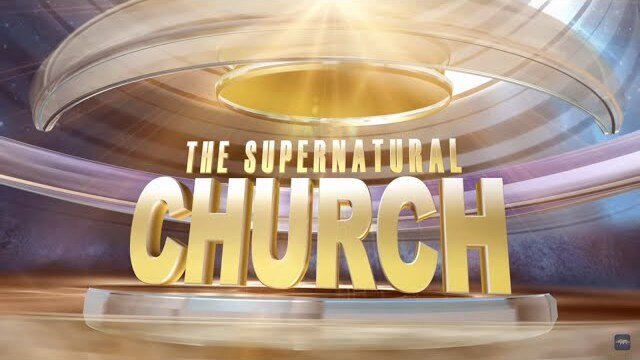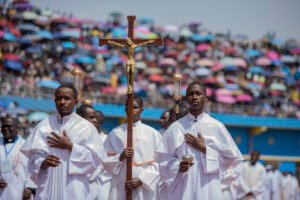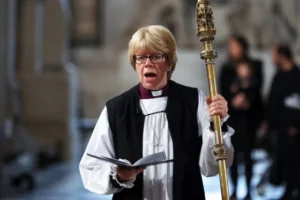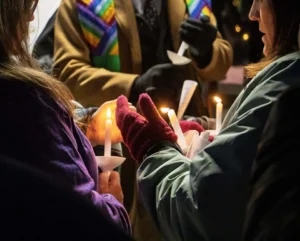Understanding the Supernatural Church: Five Essential Insights

Supernatural Church
What is a Supernatural Church?
The concept of a supernatural church has gained significant attention within contemporary Christianity. Essentially, a supernatural church is characterized by a strong emphasis on the direct and active presence of the Holy Spirit among its congregation. This movement is distinct from traditional Christian practices, which may not prioritize the experiential aspects of faith as much. The origins of supernatural churches can be traced back to various revival movements and charismatic expressions within Christianity that surfaced in the 20th century.
Beliefs within supernatural churches often center around the expectancy of divine intervention in everyday life. Adherents place a high value on spiritual gifts, such as healing, prophecy, and miracles, viewing them as manifestations of the Holy Spirit’s work within the church community. The significance of these supernatural experiences is profound, fostering a sense of connection between the divine and the believers. It encourages congregants to cultivate a personal relationship with God that extends beyond traditional worship services.
Moreover, supernatural churches typically prioritize teachings that encourage faith-filled living, which might include engaging with scripture in a way that seeks tangible outcomes. This focus can lead to a community where members are not only viewers but active participants in their spiritual journey. They are challenged to step into faith that expects the miraculous, contrasting sharply with more conventional worship styles that may emphasize liturgy and ritual over experiential spirituality.
In essence, the supernatural church movement invites individuals to explore the depths of their faith through experiences that affirm God’s ongoing activity in the world today. This deeper connection can lead to transformative personal and communal experiences within the body of Christ, marking a pivotal shift in what it means to exist as a believer in the modern age.
Historical Context and Growth of the Supernatural Church
The Supernatural Church movement emerged as a significant and vibrant expression of Christianity, particularly during the late 20th century. Its roots can be traced back to various waves of spiritual revival, especially the Pentecostal and Charismatic movements of the early to mid-1900s, which emphasized the experiential aspect of faith. These movements highlighted the baptism of the Holy Spirit, speaking in tongues, and divine healings, paving the way for a more hands-on approach to worship and spiritual engagement. The evolution of the Supernatural Church is intrinsically linked to these earlier movements, drawing upon their theological frameworks while introducing new perspectives aligned with contemporary understanding.
Among the key figures that played a vital role in advancing the Supernatural Church were leaders such as John Wimber and Bill Johnson. Wimber, founder of the Vineyard Movement, advocated for signs and wonders as integral components of faith. His teachings on healing, prophecy, and worship have resonated with followers, encouraging them to pursue a deeper connection with the divine. Meanwhile, Johnson, as a prominent leader at Bethel Church, has promoted a culture of supernatural ministry that emphasizes the availability of God’s power in daily life. Their influence has sparked a global movement where believers actively seek to experience the supernatural in their spiritual practices.
As the Supernatural Church adapted to contemporary culture, several factors contributed to its growth. The rise of social media and technology facilitated the spread of charismatic theology, allowing teachings to reach a broader audience. The movement’s appeal to individual experiences of faith has resonated with many Christians disillusioned by traditional worship settings. Additionally, the focus on community, healing, and empowerment has attracted a diverse demographic, leading to a rich tapestry of practices and beliefs within the Supernatural Church. This evolving landscape demonstrates a dynamic response to the needs and aspirations of modern believers, ensuring its relevance in an ever-changing world.
Core Beliefs and Practices
Supernatural churches are characterized by distinct beliefs and practices that set them apart from traditional Christian denominations. Central to their faith is the belief in the active presence of the Holy Spirit, which is perceived as a powerful force that allows for the manifestation of miracles, signs, and wonders. This belief instills a sense of divine intervention in the lives of believers, fostering a community centered on experiencing God’s power.
One of the prominent practices in supernatural churches is faith healing. This practice reflects the conviction that through prayer and laying on of hands, individuals can be healed from physical, emotional, and spiritual ailments. Faith healing not only serves as a demonstration of divine power but also strengthens the faith of the church community, as congregants share testimonies of miraculous recoveries, instilling hope and encouraging collective belief in God’s abilities.
Additionally, prophetic ministry plays a critical role within supernatural churches. Prophets are believed to receive divine messages from God, which they share with the congregation to provide guidance, encouragement, and direction. The prophetic voice is often seen as a means of receiving personal revelations, leading believers to deeper relationships with God. This emphasis on prophecy allows for a dynamic worship experience, where congregants are actively engaged and responsive to the unfolding of God’s will in their lives.
Miracles also hold a central place in the worship practices of supernatural churches. From supernatural healings to extraordinary occurrences during services, miracles reinforce the belief in a God who intervenes in human affairs. The expectation of miracles cultivates an atmosphere of anticipation and faith, where worship is not merely a ritual but a space for spiritual encounter and transformation.
Through these core beliefs and practices, supernatural churches foster a vibrant community life rich with faith, hope, and engagement, drawing individuals into deeper spiritual experiences that distinguish them from other Christian traditions.
Community and Worship Experiences
The supernatural church is characterized by its strong focus on community and collective worship experiences. These churches often emphasize shared spiritual encounters that enhance the sense of belonging among congregants. In this environment, worship styles may vary significantly, incorporating elements such as music, prayer, and rituals that aim to create a transcendent atmosphere. This shared focus on the supernatural often leads to heightened emotional engagement, allowing members to form lasting connections with one another.
Group participation is a hallmark of community life in supernatural churches. Members are frequently encouraged to share their individual experiences with the supernatural, fostering an environment where stories of divine intervention and miracles are celebrated. Through these testimonies, a collective narrative emerges, reinforcing the bonds within the congregation. Furthermore, communal worship sessions are orchestrated to encourage interaction, ensuring that congregation members feel connected not only to the divine but also to each other. This connection is often perceived as a vital component of their faith journey.
In addition to traditional worship services, supernatural churches often host various events aimed at promoting fellowship among members. Activities such as small group discussions, prayer meetings, and social gatherings provide opportunities for deeper engagement with one another. These events are designed to cultivate intimacy, allowing individuals to explore their faith within a supportive context, thus enhancing their overall spiritual experience. Ultimately, the integration of community and worship in supernatural churches reinforces the belief that shared experiences of the supernatural contribute significantly to both personal and collective growth.
Leadership and Governance in Supernatural Churches
In supernatural churches, the structure of leadership often reflects the belief that pastors and leaders serve as conduits for divine revelations and spiritual authority. This perception significantly influences the governance dynamics within these congregations. Leaders are frequently seen not just as administrators but as individuals endowed with spiritual gifts, which can include prophecy, healing, and discernment. These gifts are believed to empower leaders to guide the church and its members in accordance with divine will.
The authority of church leaders in this context is complex and can vary greatly from one congregation to another. Typically, leadership is hierarchical, with senior pastors often holding the highest authority. However, many supernatural churches emphasize the importance of collective decision-making, involving congregational input potentially through prophetic insights or communal prayer. This blend of authority and shared governance creates a unique approach to decision-making, where spiritual discernment plays a critical role in guiding organizational direction.
Additionally, the significance of spiritual gifts is underscored in these churches, as leaders are expected to nurture and cultivate these abilities within their congregants. Leadership training programs may include teachings on spiritual gifts and their application in ministry, further shaping the leadership style that prioritizes empowerment over control. The result is a dynamic where leaders are viewed as facilitators, encouraging members to engage in supernatural experiences and develop their own gifts.
As such, the leadership structures in supernatural churches are not merely about maintaining order; they are deeply embedded in the faith and spiritual experience of the community. This understanding fosters a sense of belonging and purpose among members, reaffirming the notion that each individual plays a role in the supernatural work of the church. In conclusion, the interplay between leadership authority, spiritual gifts, and congregational engagement marks a distinctive feature of governance in supernatural churches.
Challenges and Criticisms
The supernatural church, often characterized by an emphasis on spiritual gifts such as healing, prophecy, and miracles, faces a unique set of challenges and criticisms, particularly from traditional Christian communities. One significant critique is rooted in skepticism regarding the theological interpretations and practices commonly associated with these churches. Critics argue that the focus on supernatural phenomena can lead to a departure from core doctrinal teachings, emphasizing experience over scripture. This perceived imbalance raises concerns about the theological integrity of supernatural churches and their adherence to biblical principles.
Another common misconception is that supernatural churches operate primarily on emotional experiences, thereby undermining a foundational understanding of faith. This view posits that reliance on miracles and signs can distract from the teachings of Christ and the importance of personal responsibility in one’s spiritual journey. Detractors caution that an excessive focus on the supernatural may lead to disillusionment when experiences do not align with expectations.
In response to these challenges, many supernatural churches engage in dialogue with critics to clarify their intentions and theological stance. They emphasize that their practices are deeply rooted in scripture and that experiences of the supernatural are viewed as an extension of faith, not a replacement. Moreover, leaders within these communities often assert that their emphasis on miracles serves to attract attention to the gospel and demonstrate the power of God in a contemporary context.
Supernatural churches also work to bridge gaps with traditional communities by prioritizing education and teaching around theological foundations. By providing resources and engaging in community outreach, these churches aim to foster understanding and reduce misconceptions about their practices. Thus, while challenges persist, the supernatural church remains committed to its mission, navigating criticism while affirming its beliefs and identity in the broader Christian context.
The Impact of Technology on the Supernatural Church Growth
The emergence of technology has profoundly transformed the landscape of religious institutions, including supernatural churches. In recent years, the integration of digital platforms and social media has become increasingly vital for these churches, enabling them to extend their reach and foster community engagement. Through the use of technology, supernatural churches have the ability to connect with a significantly larger audience than was previously possible, which is revolutionizing how spiritual experiences are shared and celebrated.
One of the most notable impacts of technology is the accessibility it provides. With the advent of online streaming services, supernatural churches are now capable of broadcasting their services to followers who may not be able to attend in person. This virtual presence allows for participation from individuals across various geographical locations, facilitating a broader congregation. Furthermore, live-streaming events on platforms such as Facebook, YouTube, or Instagram creates an environment where real-time interaction can occur, enhancing the sense of community among members.
Social media serves as a powerful tool for awareness and outreach, significantly amplifying the messages of supernatural churches. These platforms allow churches to disseminate supernatural experiences, testimonials, and teachings that resonate with a wider audience. By strategically utilizing hashtags and engaging content, churches can tap into conversations that matter to individuals seeking spiritual growth, thus attracting those who may be curious about the supernatural realm.
Moreover, technology supports the building of supportive online communities. Members can engage in discussions, share their own spiritual journeys, and partake in prayer requests in virtual environments, fostering deeper connections and providing a sense of belonging. This community building extends beyond physical gatherings and allows for continuous engagement, thus driving the growth of supernatural churches.
Overall, the integration of technology and social media plays a pivotal role in the expansion of supernatural churches. It not only facilitates outreach and engagement but also cultivates a vibrant community that supports spiritual exploration and connection among members.
Future Trends and Predictions
The supernatural church movement has gained significant momentum over recent years, and its future trajectory reflects an evolving landscape shaped by various societal influences, demographics, and cultural changes. One prominent trend is the growing relevance of spiritual experiences among younger generations. Many individuals within this demographic are seeking authentic encounters with the divine, sparking an increasing interest in supernatural phenomena within church settings. This shift could lead to a rise in experiential worship formats that emphasize personal transformation through supernatural encounters.
Moreover, the impact of technology cannot be overlooked. Digital platforms have become pivotal for community engagement and spiritual expression, allowing supernatural churches to extend their reach beyond geographical limitations. The integration of virtual services and online discipleship programs is likely to continue, creating an interactive environment where congregants can participate from anywhere in the world. This virtual aspect may also facilitate the sharing of miraculous testimonies and supernatural teachings, further enhancing the movement’s visibility.
Another trend relates to the merging of cultural elements within the church. As communities become increasingly diverse, supernatural churches will have to adapt their messages and practices to resonate with varying cultural backgrounds. This could result in a more inclusive approach that combines traditional beliefs with contemporary experiences, appealing to a broader audience. The rise of inter-denominational collaborations may also highlight the convergence of different theological perspectives, fostering unity among various expressions of faith.
Lastly, the societal focus on mental health and well-being presents an opportunity for supernatural churches to intertwine spiritual practices with holistic approaches to emotional and psychological wellness. Churches might innovate programs that incorporate teachings on healing and deliverance within the context of mental health awareness. By anticipating these trends and understanding the evolving needs of their congregants, supernatural churches can remain relevant and influential in the coming years.
Conclusion: The Significance of the Supernatural Church in Modern Christianity
The supernatural church has emerged as a vital component of contemporary Christianity, offering a unique perspective on faith and spiritual experience. It brings a renewed emphasis on the workings of the Holy Spirit, divine healing, and miraculous signs, which resonate deeply with believers seeking a more profound connection to God. This movement highlights the importance of experiencing the miraculous as a fundamental aspect of spiritual life, reflecting a desire for authenticity in worship and practice.
One of the key takeaways from the discussion surrounding the supernatural church is its ability to engage individuals in a transformative process. By encouraging believers to seek personal encounters with the divine, the movement fosters spiritual growth and renewal. Many Christians find empowerment in embracing the supernatural as a legitimate expression of their faith, enabling them to navigate the challenges of everyday life with a sense of divine purpose and assurance.
Moreover, the supernatural church signifies a shift in the broader Christian landscape, aligning with the increasing appetite for experiences that transcend traditional religious practices. This trend suggests an openness to exploring new dimensions of spirituality, which has the potential to unify diverse groups of believers. The supernatural church also sparks conversations about theological perspectives, urging Christians to examine their beliefs in light of biblical teachings on miracles and the active presence of God in their lives.
Looking ahead, the significance of the supernatural church in modern Christianity lies not only in its current influence but also in its capacity for continued growth. As believers engage thoughtfully with this movement, they are invited to explore the depths of their faith, championing a new wave of spiritual revival. Ultimately, recognizing the supernatural as a central theme in contemporary Christianity invites a re-examination of spiritual dynamics, creating pathways for deeper understanding and enrichment for all believers.












Leave a Reply
You must be logged in to post a comment.